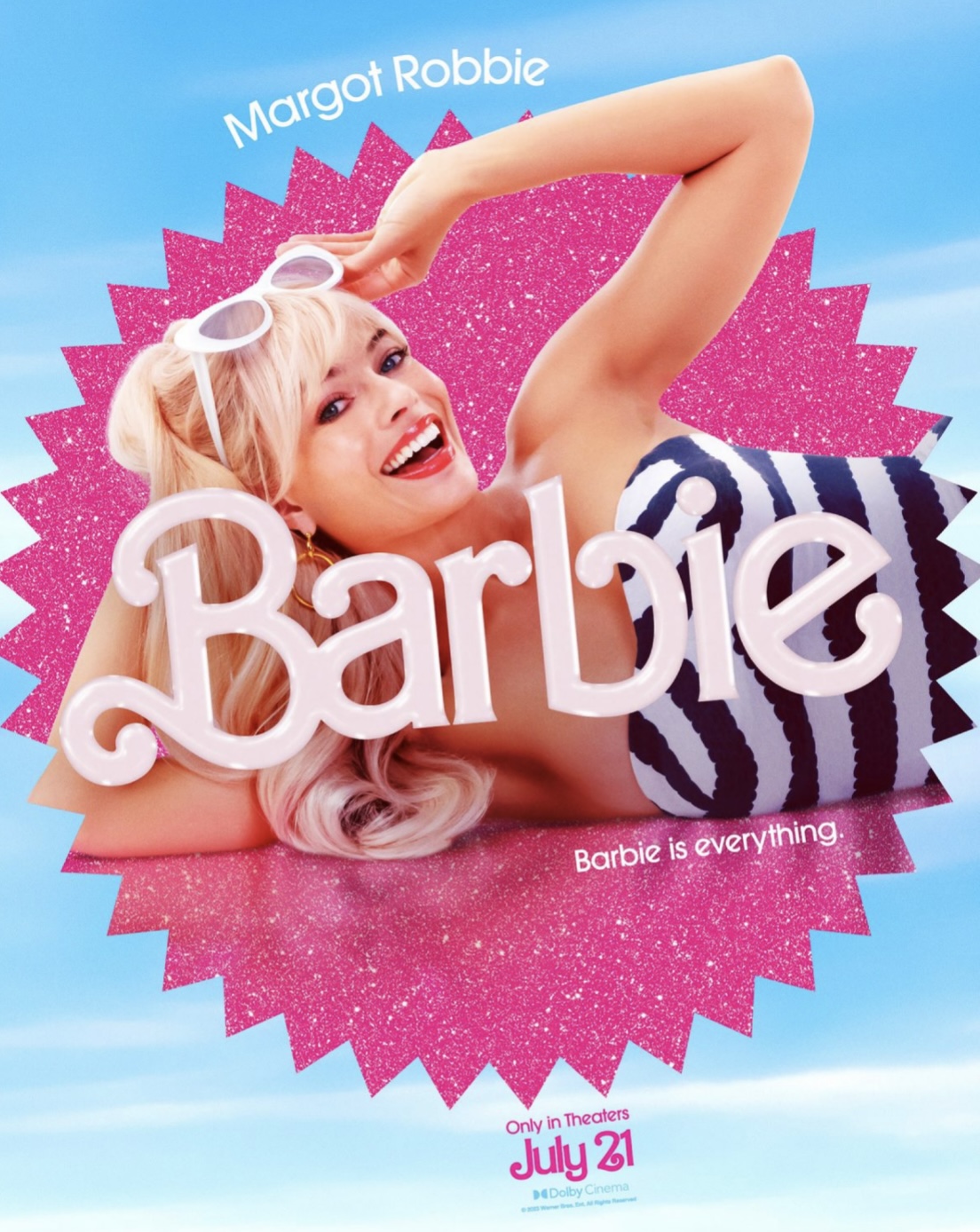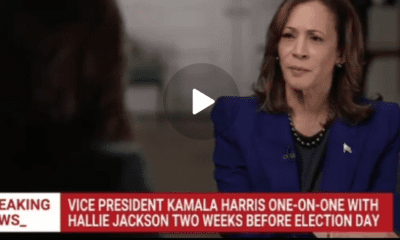The Conservative Critic
BREAKING: Is Ben Shapiro Right About Barbie?

The biggest and most heavily marketed movie of 2023, Barbie, released July 21 as a complete sensation. Across the country, audiences arrived at theaters in droves dressed in bright pink ready to take in the most anticipated movie since Top Gun: Maverick. Barbie is already above $100 million and along with Oppenheimer (thanks to the Barbenheimer movement) is set to break the top five highest revenue weekends in theater history. It’ll be the first time in history there has been an opening weekend with a film over $100 million AND a film over $50 million. Normally big releases are a solo affair.
Some prominent conservative voices like Ben Shapiro felt like the movie was “woke” and essentially meritless. Shapiro has a lot of good takes, but he also thought Super Mario Bros was “woke” and the Conservative Critic couldn’t have disagreed more.
So is he right this time about Barbie? Is it woke nonsense? The Conservative Critic asks: Is it entertaining? Does it have intellectual/artistic value? Is it liberal propaganda?
The Conservative Critic Meter Check: Barbie
Overall Rating: PRETTY Good
The Barbie movie sets out to be a funny, camp homage to an iconic doll while exploring the complexities of gender politics particularly for women. While those goals may seem radically at odds, Barbie has always been plagued by the politics of the world (it’s so hard for adults to just leave children alone and let them innocently play). So viewing gender politics through the lens of Barbie makes sense and also played out well in the film.
The movie follows Barbie played by Margot Robbie (The Suicide Squad) leaving Barbieland to resolve a malfunction that is making her life a little less perfect than usual. Joined by Ken played by Ryan Gosling (The Notebook), Barbie finds the real world to be different than she expected…and so does Ken.
What the Barbie team did absolutely right was the meticulous attention to detail in their production. The Barbieland sets are as if they used a shrink ray and just shrunk the actors down to play in real life Barbie dream houses, beach sets and convertibles. The movie is also packed full of quirky humor and random disjointed choices making it a colorful and exciting ride. The performances are solid, particularly in the case of Gosling. Where the movie falls short of its glorious hype is in the story telling. While the messaging had a lot of facets and balanced politics, it was a little all over the place and I was never convinced the writers knew what Barbie’s story really was (unlike Ken…).
Overall, it’s a pretty movie with loads of fun and plenty to talk about on the car ride home.
Is it entertaining?
Rating: Wild, chaotic, messy and fun
Barbie gets the fun right. There are obvious jokes as well as subversive jokes. All of the music is original and It’s complete with a car chase, a massive brawl and musical number. The nostalgia alone could have carried this one, but Barbie doesn’t rely on it entirely. The tongue and cheek is deeply embedded and if one can accept the camp of it all, it’s a vibrant, joyful, silly movie experience.
Does it have intellectual/artistic value?
Rating: Strong in details, weak in dialogues
Visually, the movie is spectacular. The costumes are immaculate from Barbie’s wardrobe to the other Barbies wardrobe to Ken and the other Kens outfits. The aesthetics generally are so pleasing with sharpened pastel everything and the perfect line between cartoon and reality. The set design cares so much. Barbieland looks genuinely like it was made of toys from the plastic palms to the pink resin beach “sand.” There are no details missed. The “real world” is actually much more the surreal world and it reads visually exactly as it should as an idealized/hyperbolized version of actual reality.
The performances are all solid but Ryan Gosling really steals the whole thing out of Margot Robbie’s lap. In part, this is due to the storyline which provides Ken a much more dynamic character arc than Barbie (ironically). While Robbie embodies Barbie as if she herself was born in a cardboard box in 1959, Gosling gives life and personality to Ken which never existed before. Gosling manages to be both the comedic heavy weight of the movie as well as a significant portion of the heart.
America Ferrera (Superstore) as the real human woman Gloria brings her criminally underrated likability and onscreen charisma to a part which unfortunately suffered from being way over written. Gloria is a mom of a young teenage girl who works at a job she is passionate about but does not always show her much respect. Audiences are exposed to her daughter’s natural rejection of their bond and her pain of feeling lost as she no longer knows her place in the world. All of that would be fine if not for the very poorly written dialogue which overtly explains themes to an audience of predominantly women who don’t need to be told what it’s like to be a woman.
The lack of subtlety and trust in the audience is not limited to Ferrera’s character and is the major drawback of the otherwise good movie. The characters of the movie routinely feel the need to exposit context and plot points. Sometimes this is masked by campy humor and others it’s played completely straight. It never works.
Is it liberal propaganda?
Rating: Yes. But actually a bit more so conservative propaganda.
There will be spoilers to get into all of the ins and outs on the politics of the movie. So in brief, the movie presents a lot of explicit liberal points of view as well as explicit conservative points of view. But what is more interesting are the implicit takes which are extremely self aware and critical of a lot of the stereotypical liberal feminist ideologies that typical American women tend to dislike. It is woke. But it also isn’t. The two concepts coexist in the movie.
SPOILERS BELOW
The reason people like Ben Shapiro think the movie is woke is because the characters say really woke things. So to be fair, those viewers are taking the movie literally at its word. The opening sequence features young girls violently rejecting toys which promote motherhood. A viewer like Shapiro might see this as an indictment on stay-at-home moms and traditional values. However, the segment is meant to be funny and over the top and the narrator even makes a comment that indicates an acknowledgement that motherhood is extremely hard. The nature of how the segment is filmed is intended to be self-aware about the silliness of old feminist adages. This kind of conflict between spoken and implied morality occurs frequently throughout the film. The intention is to demonstrate to viewers the complexity of gender politics in the context of womanhood.
The movie is actually quite particular about celebrating moms. More so than many (if any) movies that present themselves as “feminist” have ever done before. The central human characters which bring Barbie to the real world are mother and daughter. Barbie’s inventor is a character in the movie and shares that the doll is based on her own daughter (and the real life Barbra makes a cameo). In a very subversive piece of humor, the pregnant mom doll in Barbieland isn’t a Barbie, her name is Midge and everyone avoids her. “Because women can be everything! But not while pregnant. God no.” It’s a joke meant to point out the inequity of how women who want to raise families (both working and otherwise) are viewed in current society. “I thought we canceled those.”
In fact, in one of the monologues I wish was less overt, Ferrera’s character, Gloria goes on about how women are expected to be everything and then goes on to expressly state that being a stay-at-home mom is a worthy choice. That is very much in line with conservative values which should be focused on ensuring women get to choose their paths and bear children if they want within those paths.
Finally, Ken is given the most dynamic character arc in the movie and his story skirts pretty close to being pro-men. In the course of the movie, Ken learns about the patriarchy and becomes interested in finding his power and his voice. He tries to assert this over Barbie and is for a while successful. But ultimately, he is thwarted and he admits he didn’t even really like the role he’d invented for himself and Barbie is able to admit she’d taken him for granted. While the rejection of “manly things” is a more liberal point of view, the acknowledgement that he was being taken for granted and that his role as side-kick had made him feel lost and emasculated was circling dangerously close to admitting that being a man is actually quite a hard thing.
Conclusion
Barbie is a good, cute movie that is woke but also very much isn’t woke. It’s worth seeing for fun and for discussion.




